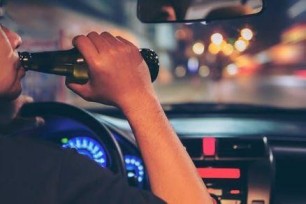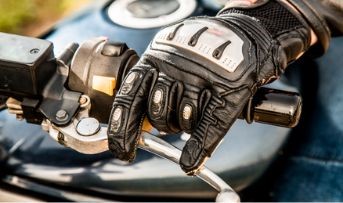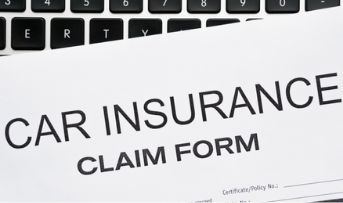General Insurance Blogs, Articles & Updates by - Magma Insurance
Have us call you
- RENEW YOUR POLICY
- BUY NEW POLICY

Here are eight common myths about traffic laws in India
The growing number of vehicles plying on the roads have notable implications on traffic congestion and highway accidents. According to statistics recorded by the Indian Road Congress, road accidents occur in India every four minutes!
Most of these incidents happen due to the drivers' incomplete knowledge and failure to follow traffic rules. Although stringent measures are taken to punish the faulty drivers, individuals continue to believe in a few myths regarding the laws that can put their and others' lives at stake.
Here are eight common myths about traffic laws in India that you should not believe.
1. There is no need to follow traffic lights at night:
People think that there is no need to follow traffic lights after a particular hour at night. But, they forget that they are not the only ones driving at night. Although some intersections display blinking amber traffic lights, it doesn't mean the high-speed crossing is allowed on those signals. These blinking traffic lights indicate you to proceed with caution without stopping.
2. You can overtake from the left:
India is a right-hand driving nation, so a driver should overtake another vehicle from the right-hand side; that’s what even our laws say.
However, there is an exception. If the driver in the front has indicated to take a right turn, you can overtake that vehicle from the left side while maintaining a distance. But, always give appropriate indications while turning and even follow the indications given by other drivers.
3. Parking anywhere you want:
Parking, as per our convenience, has always felt normal in India. Parking anywhere is okay if the road doesn't have a 'No Parking' sign. People tend to park their vehicles everywhere as long as there is no towing van insight. However, it is essential to park the cars properly to ease the traffic for everyone.
4. Reversing on a one-way street:
People find it convenient to reverse a car on a one-way street because they don't see this as an offence. In such scenarios, the logical concept of 'vehicle facing the same direction of traffic flow' is untrue and can be a significant driving hazard. It is prohibited to reverse on a one-way road, as it interrupts the ongoing traffic.
5. You don't need insurance for an old car:
Another crucial myth is that we don't require motor insurance policies for old cars. However, driving without valid insurance documents can land you in trouble. So, if you don't have one and are driving your car, buy motor insurance online to avoid distress during your driving.
6. Seat belt is not required for slow driving:
There are countless advertisements put out to emphasize the importance of seatbelts. Yet, many drivers consider that seat belts are not required for low-speed driving. They assume that seat belts are used to avoid being "caught" or "getting a ticket" rather than for safety reasons. The myth that you do not need to wear a seatbelt has put a lot of lives in danger.
7. Hands-free are allowed while driving:
The traffic law has banned using phones while driving; still, many believe that using a hands-free device is acceptable. Is attending calls more important than your life? This shouldn’t be the case, as any distractions while driving can be a potential risk.
8. Drink and drive:
According to traffic laws, the permissible limit of Blood Alcohol Content (BAC) in a person's blood is 30 mg per 100 ml (0.03 percent). To explain it, even one drink of 30 mg can wander your thinking, blur your vision and impair your reflexes. There is a myth that if you drive slowly after a drink, you can still handle the road. Such overconfident drivers can be moving threats to other drivers that are sober and responsible.
Remember, ignorance is not a reason for doing something unlawful on the road. While many drivers are cautious, the mishappening still occurs due to mistakes from the other side. Always have motor insurance for the financial protection of your vehicle. You can buy motor insurance online from a reputed motor insurance company for safety on the road.
Prevention is always better than cure, but not everyone is fully clued about 'safe driving'. So clear up that confusion and misinformation about traffic rules. It is time we change the common motor law myths.
Click HERE to buy a motor insurance online for your vehicle.
Disclaimer: The information provided above is for illustrative purposes only. To get more details, please refer to policy wordings and prospectus before purchasing a policy.

When should you switch to comprehensive car insurance from third-party insurance
For many years, owning a car has been looked at as a show of wealth. But in recent years, a vehicle has become more of a need than a luxury or leisure. Yet purchasing a four-wheeler is still recognised as one of life's significant achievements and investments.
As an impact of the pandemic, people are more likely to travel by car than public transport. Whilst the value of owning a vehicle has grown over time, ensuring its security and safety is essential. Therefore, do not overlook your car's insurance and get car insurance renewal on time.
What is comprehensive car insurance?
As the name suggests, comprehensive car insurance is broad insurance coverage that provides security against various concerns. Comprehensive car insurance is so far the most commonly adopted kind of automobile insurance since it covers both parties in the event of an accident. It protects you in a crisis, accident, robbery, fire, or explosion, among many other situations. Including extras or add-ons to comprehensive insurance, such as depreciation cover, emergency assistance, engine protection, and so on, makes it a more customisable and desired kind of auto insurance coverage.
What is third-party car insurance?
The Motor Vehicles Act of 1988 states that third-party car insurance is the most basic and necessary insurance to possess and is required for all car owners. Third-party insurance, as a contrast to comprehensive insurance, provides limited coverage. It protects you against losses made by your vehicle to a third party. The damages done to a third party's car, property, or the individual themselves will be covered under this policy. This sort of motor insurance covers any third-party damages, injuries, or losses caused by the policyholder's misconduct.
When to switch from third-party car insurance to comprehensive car insurance?
Following are a few reasons to switch to comprehensive insurance from third-party insurance:
1. Covers your losses:
With the exception of basic third-party car insurance, comprehensive car insurance covers your vehicle for losses caused by a range of factors.
2. Customisable add-ons:
One of the chief factors for switching to comprehensive car insurance is customising the coverage depending on the various add-ons offered by the insurer. Customising the plans gives the policyholder the independence to get better coverage and benefits.
3. Personal accident coverage:
In addition to injuries caused to a third party, comprehensive car insurance involves personal accident coverage for your treatment in the event of an accident. This feature is crucial for all policyholders and can be extremely helpful during unexpected situations.
Getting the proper car insurance coverage is as crucial as getting the perfect vehicle. While the law requires you to have motor insurance, do not limit yourself to the bare minimum. A comprehensive auto insurance coverage protects you against the expense of hospital and auto repair fees. It provides all-around protection, making it a must-have in your inventory.
Similarly, remember the importance of purchasing ideal car insurance and even timely car insurance renewal to avoid interruption in the benefits.
To get a car insurance renewal, click HERE .
Disclaimer: The information provided above is for illustrative purposes only. To get more details, please refer to policy wordings and prospectus before purchasing a policy.

The ignored benefits of wearing your biking gloves on long rides
Are you a long-ride motorbike enthusiast? Fun is always the best part of such experiences. But what about the rider's security? Safety gear like gloves is a matter of debate, with some viewing them as a fashion statement rather than a necessity. However, gloves can help you maintain a firmer hold on the handlebars, absorb shock better, and protect your hands in the event of a spill. Every rider should have a helmet and gloves for protection.
Investing in a good pair of biking gloves will make you look like a pro and make your rides safer and more comfortable.
The benefits of wearing your biking gloves on long rides.
Your head requires protection while biking so does the rest of your body. If you're in a collision, your legs, arms, and hands are also at risk. Investing in appropriate protective gear for these body parts is a good idea to ensure your safety on the road.
In the event of an accident, your natural reaction is to grab hold of the handlebars as tightly as possible. Most of the impact on the ground will be absorbed by your hands. If you're not using gloves or other protective gear, your hands are at risk of serious injury. To protect against harm, gloves are essential. A cushioning layer prevents damage from falling to the ground's grit, rocks, or gravel.
1. Concern for the riders' well-being:
Some gloves for bike riders feature a cutting-edge design that boosts user protection. To indicate a turn, urban bikers frequently don LED turn signal gloves. The gloves have a futuristic design and are illuminated to send a clear message at night. Most bikers agree these gloves are ideal for using hand signals while riding. Their longevity and solid build quality are additional selling points.
Comfortable gloves are great for long rides because they keep your hands warm and dry. And this is the main reason why bikers always wear gloves. It's normal to get sweaty palms after a long time spent on a bike. Because gloves can soak up moisture from your hands, they significantly improve your comfort level. A tight grip on the handlebars can cause discomfort from pressure and friction. You can reduce this if you wear gloves or other hand protection.
2. A firmer hold:
The temperature and humidity where you are biking can cause your hands to become damp and sweaty, resulting in a compromised grip. High-quality biking gloves allow air to circulate so your hands stay dry and comfortable.
3. It can reduce the impact of a fall:
If you enjoy riding over rough and rugged terrain, you should get accustomed to constant pressure. Gel pads or padding are commonly found in gloves for just this purpose. The gloves' palm padding helps absorb impact and distribute pressure more evenly, protecting your hands from injury.
4. Riding comfort:
Winter weather is a constant obstacle for bikers in northern latitudes. The cold will be especially noticeable on your hands. Good gloves help you ride comfortably to places in cold weather.
In conclusion, biking gloves are vital yet overlooked safety gear. Numerous situations call for the riders to always opt for protective gloves. The level of comfort and security it provides while you ride a bike is elevated to new heights. In addition, a bike insurance online plan protects the policyholder against losses resulting from theft, natural disasters, man-made calamities, etc., making for the perfect protection provider to accompany you on your long-distance adventures!
Click HERE to buy bike insurance online.
Disclaimer: The information provided above is for illustrative purposes only. To get more details, please refer to policy wordings and prospectus before purchasing a policy.

Things to remember while making endorsements that can save your car claim from rejection
Applying for a car insurance claim may be a stressful procedure, regardless of how well you may have painted the picture for yourself. However, not all insurance companies are trying to steal your hard-earned money. You can cope with any problems with car insurance claim settlement that may arise by just being informed of the specifics involved in the procedure.
Having a car insurance claim denied is common, though. There's a good chance that someone you know has experienced it. Additionally, it frequently occurs that the policyholder cannot understand why their car insurance claim was denied, which only heightens their frustration.
However, you need to know a few things concerning the rejection of a car insurance claim.
Reasons for denial of car insurance claims:
A typical car insurance coverage will often cover loss or damage brought on by theft, accidents, or other people. However, it would be absurd to assume that your car insurance company will pay for any losses or damages that result from the normal wear and tear the car experiences over time and with use.
What should you keep in mind to avoid your claim from getting denied?
1. Give accurate documentation, even when applying online:
Refrain from giving false or inaccurate documentation for insurance purposes, even if you are applying for a claim online. If you submit a claim and the insurer discovers that the supporting documents are incorrect, misleading, or even phony, your claim may be denied.
2. Read the policy document in its entirety:
Because they are more knowledgeable about the policy's terms and conditions, insurers can better find a point you ignored and use it to support their decision to deny your claim. To avoid this, policyholders are encouraged to carefully read their policy contracts to be informed of what will be covered and what won't. Feel free to seek assistance from someone knowledgeable in insurance jargon to clarify the policy and assist you if you are unsure of what it says.
3. Save every invoice and receipt:
It would be a good idea to have such accessories covered under an add-on cover if your car is equipped with anti-theft gadgets, an expensive radio system, or anything else that is not included in the car's standard equipment. The bills or receipts for purchasing those accessories must be presented, though, if you ever need to claim for the damage or loss of those items. The related invoices and receipts must be available. In every other case, the assertion is likely to be disproven.
4. Remain within the claim intimation time window:
Insurance companies typically stipulate that policyholders have 48 to 72 hours to notify the insurer of any incident or accident after it has happened. Always do so. However, this may only sometimes result in your claim being denied.
5. If a car is stolen, file an FIR right away:
You would be quite stressed if your car got stolen. To register a claim, particularly in the event of a theft, you must first file an FIR at your local police station. Take notice of this step. A claim's submission or approval could be complex without an FIR.
6. For co-passenger protection, take a separate cover:
Co-passenger insurance must be purchased separately for each passenger if you want to provide coverage for them while riding in your car. If you do not have adequate coverage for your fellow passengers, the insurance company may deny your claim for their injuries in the event of an accident.
You can conveniently buy online motor insurance policy, but getting a car insurance claim granted might be challenging. Nothing in this is set in stone, and you may always contact your insurance provider to figure out how to resolve a denied claim or learn the reasons for the denial of your claim. Invite those with knowledge of insurance issues to assist you.
Click HERE to buy online motor insurance.
Disclaimer: The information provided above is for illustrative purposes only. To get more details, please refer to policy wordings and prospectus before purchasing a policy.

